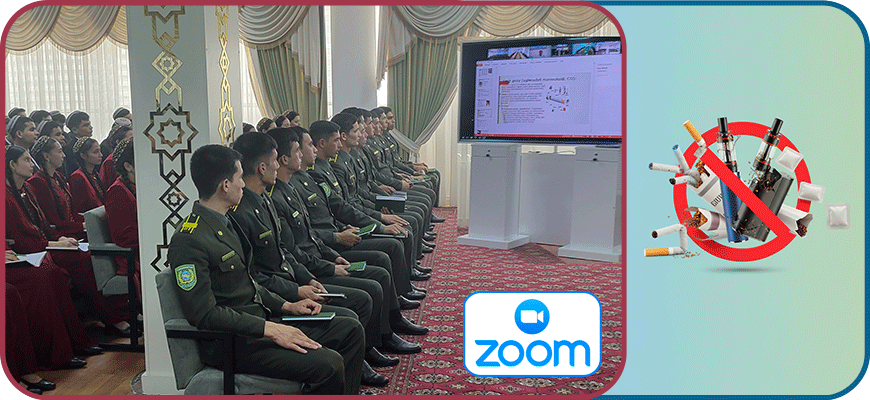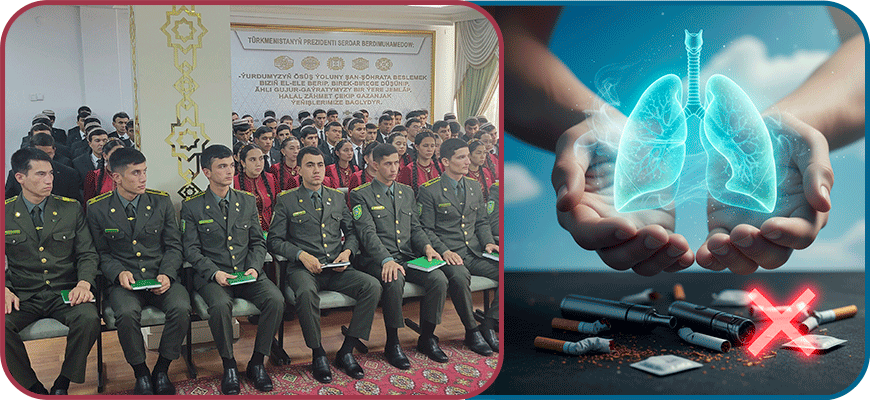




In today’s world, where the speed of decisions often outpaces their quality, the issue of conscious health choices is no longer a private concern but a matter of public safety. For this reason, the Myrat Garryyev State Medical University of Turkmenistan has organized an online meeting dedicated to a topic of critical importance — the harms of tobacco and nicotine-containing products. The focus is intentionally broad: not only traditional cigarettes, but also modern alternatives such as e-cigarettes, heated tobacco systems, and nicotine pouches. Marketing promises of “reduced harm” or “temporary replacement” are illusions, and illusions often pave the way to long-term dependence.
Why is the university raising this issue now?
First, because health is the foundation of professional capability for future doctors, teachers, engineers, and leaders.
Second, because nicotine is a neurotropic substance, creating strong dependence and negatively affecting attention, motivation, and stress regulation.
Where the market advertises “safer alternatives,” reality shows otherwise: chronic airway inflammation, cardiovascular damage, passive aerosol inhalation, and the replacement of long-term goals with short-term “fixes.”
The online format is also deliberate. We seek to ensure broad and equal participation — from faculty members to students of all levels, from medical specialists to social and educational representatives. The session is guided by three core objectives:
Debunk myths of “safety” in alternatives: why aerosol is not smoke but still harmful, why “less smell” does not equal “less risk,” and how nicotine is disguised through flavorings and attractive designs.
Reveal the mechanisms of addiction — from neurobiology to behavioral triggers: stress, environment, peer pressure, and digital habits.
Propose tools for university-level prevention: tobacco- and nicotine-free campus policies; accessible counseling for quitting; peer-to-peer student initiatives; fact-based awareness campaigns without moralizing, but with science and practical pathways to change.
We deliberately shift the discussion from the binary “harmful/not harmful” to the framework of responsible risk management. In relation to health, there are no “neutral” decisions: each choice either strengthens our ability to learn, work, research, and love — or silently takes away our breath, attention, and time.
That is why we invite all participants to open dialogue, to engage experts with questions, to share personal strategies of refusal, and to support those who are only beginning this journey. Freedom is not the right to be addicted, but the ability to choose the future.

